SELECTIVE LASER SINTERING
Selective laser sintering is a generative layer construction process. In this method, the workpiece is built up layer by layer from a powdery starting material with the aid of a laser. The effect of the laser beams can be used to create any three-dimensional geometry with undercuts, e.g. B. Workpieces that can not be produced in conventional mechanical or casting manufacturing.
Characteristics
- Manufacturing highly complex structures
- Models to optimize the functional principle
- Resilient models to check the construction
- Fast and inexpensive production
- no restrictions on the design of the product idea
- Surface finishing possible
Material
PA 650 (Polyamide)
– Dimensional accuracy up to 1/10 millimeter
– High thermal and chemical resistance
– Improvement of the technical properties possible through infiltration
– Dimensions of the installation space 320 x 280 x 400 mm
PA620-MF (fiber reinforced polyamide)
– High specific rigidity and heat resistance
– Anisotropic mechanical properties, the same fiber-filled injection molding materials
– HF-permeable and non-conductive
– Simple surface processing
– Excellent resilience under high temperatures
– Attractive surface finish
DuraFormTM Flex (rubber-like properties)
– Rubber-like flexibility and functionality
– Durable and tearproof
– Durable (resists harsh environmental conditions)
– For tight closures, even under pressure
– Numerous color options available
– High thermal and chemical resistance
– Surface finish possible
– High detail reproduction
– Adjustable shore hardness from approx. 20 to 80 shore A
– Improvement of the technical properties possible through infiltration
– Maximum dimensions 320 x 280 x 300 mm
TPU92 (rubber-like properties)
– Flexible, rubber-like material
– High abrasion and tear resistance
– Extremely resilient
– Shore hardness of A 92
– High detail reproduction
– Surface finish possible
LaserForm A6 (steel-like properties)
– Properties of steel (St. 70)
– Dimensional accuracy up to 1/10 millimeter
– Reworking is reduced to a minimum
– Complex properties such as overhangs, cooling channels and panels can be integrated directly
– High thermal conductivity enables fast cycle times
– No additional costs for casting, machining and NC programming
– Maximum dimensions 320 x 280 x 150 mm
POLYJET 3D-PRINTING
Das Polyjet 3D-Druckverfahren oder auch Multijet Modelling ist ein 3D-Druck Verfahren, bei dem ein flüssiges Polymer über einen Druckkopf mit mehreren Düsen schichtweise aufgebracht und mittels UV-Licht ausgehärtet wird.
Eigenschaften
- Generative manufacturing process
- Manufacture of smooth, precise components and prototypes
- Manufacture of complex components
- Accuracy up to 0.014 mm
- Variety of colors can be shown
- Construction volume: 330 mm (x) 330 mm (y) 200 mm (z)
- Layer thickness: 0.016 mm
- X-axis resolution: 600 dpi
- Y-axis resolution: 600 dpi
- Z-axis resolution: 1600 dpi
Material
RGD720
– Production of transparent prototypes
– IZOD impact strength: 20-30 J / m
– Dimensional stability temperature: 45-50 ° C
– Flexural strength: 80-110 MPa
– Tensile strength: 50-65 MPa
VeroWhitePlus
– Function models with high accuracy
– Production of complex structures with smooth high-gloss surfaces possible
– Very high level of detail and dimensional accuracy
– Visually very close to injection molded parts
– Suitable for prototypes of medical technology products
– Suitable for the production of molded parts
– Color white
VeroBlackPlus
– Function models with high accuracy
– Production of complex structures with smooth high-gloss surfaces possible
– Very high level of detail and dimensional accuracy
– Visually very close to injection molded parts
– Suitable for prototypes of medical technology products
– Suitable for the production of molded parts
– Color: Black
VeroClear
– solid and transparent material
– Used to simulate acrylic glass
– Can also be used as an alternative to glass
– IZOD impact strength: 20-30 J / m
– Dimensional stability temperature: 45-50 ° C
– Flexural strength: 75-110 MPa
– Tensile strength: 50-65 MPa
Applications
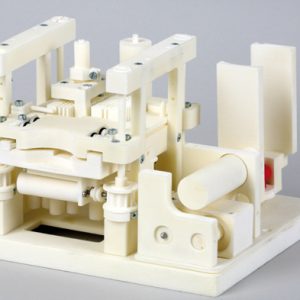
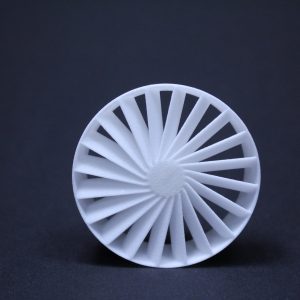
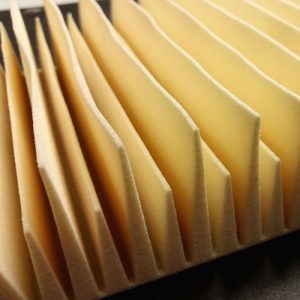
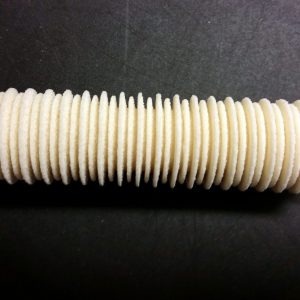
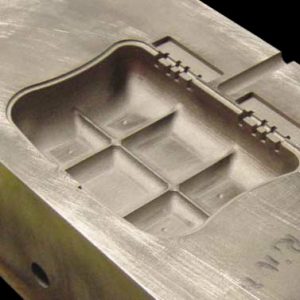
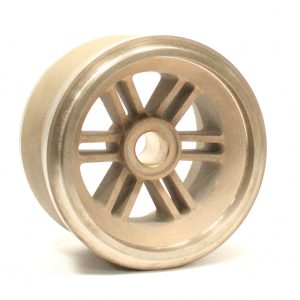
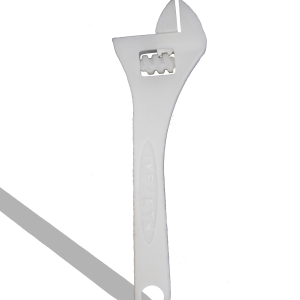
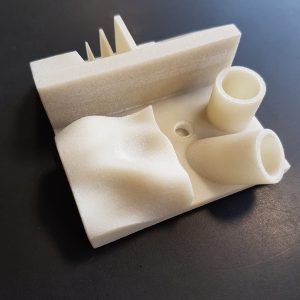
VORENTWICKLUNG
→
SERIENTRANSFER
→
MASSENPRODUKTION